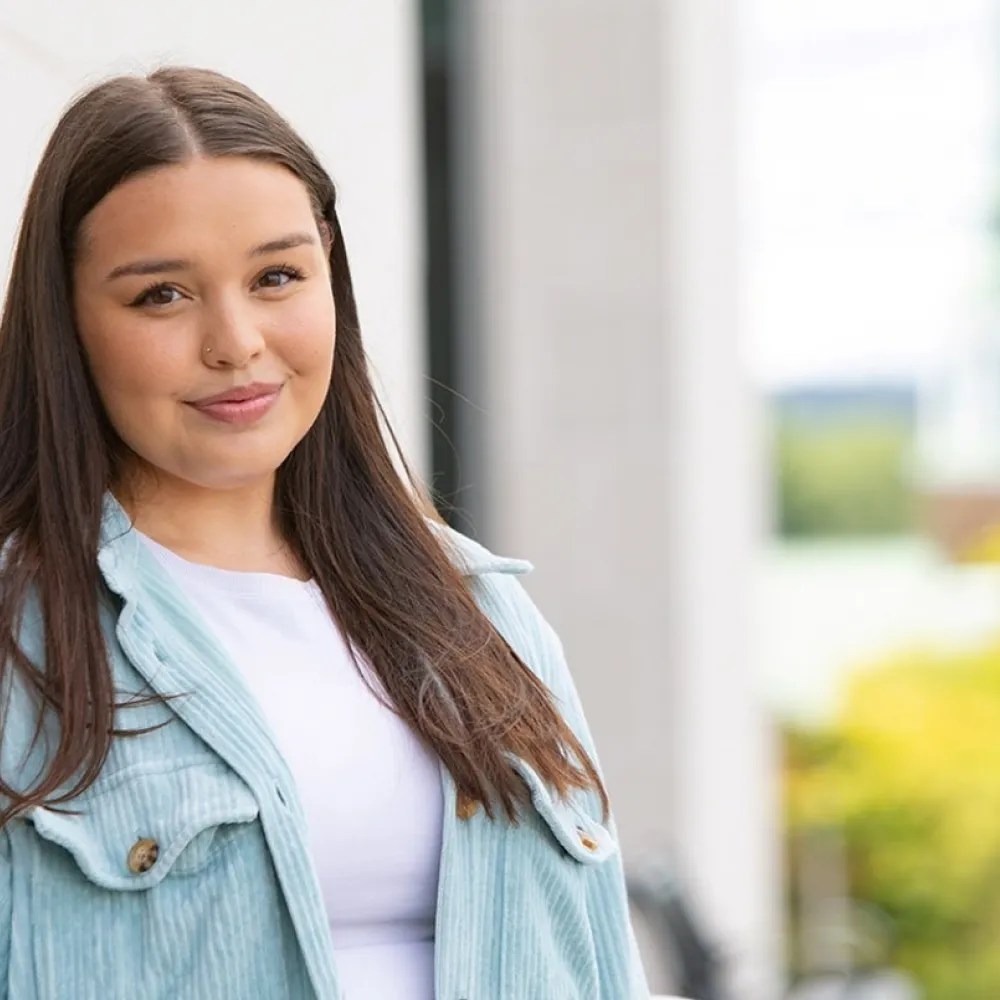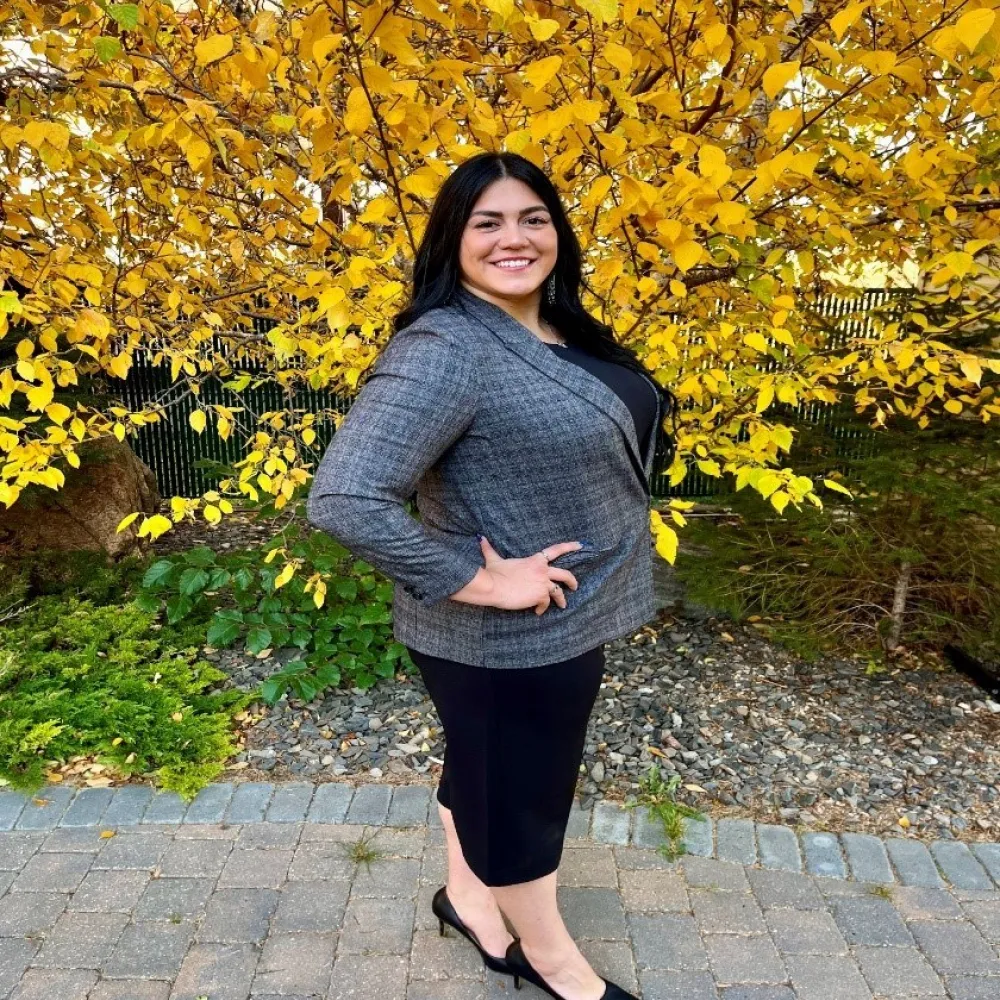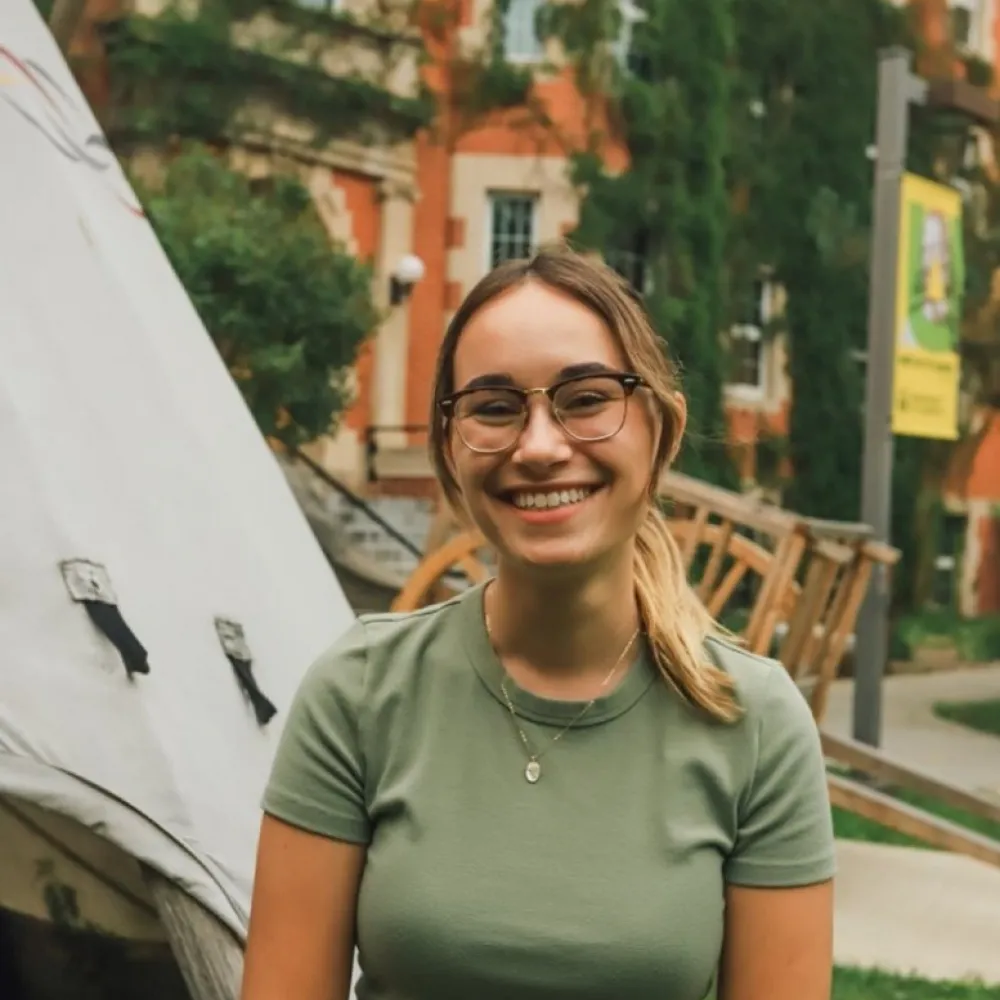- Home
- /
- Scholarships & Bursaries
- /
- Helen Bassett Commemorative Student Award

Every year, the Native Women's Association of Canada (NWAC) provides the Helen Bassett Commemorative Award to four Indigenous women, Two-Spirit, or gender-diverse students, in the amount of $1,000 each.
The awards are made possible through generous donation by Helen Bassett, an Ontario artist and passionate advocate for the advancement of Indigenous women, as well as fair solutions to Indigenous land claim issues. She directed open letters to Prime Minister Pierre Elliott Trudeau and his cabinet in 1980 and again in 1983, proposing a tax be levied on all land transactions in Canada, with a royalty paid to Indigenous Peoples. She outlined her ideas in Native Rights. In her selflessness, she specified NWAC as one of the beneficiaries of her estate. This has helped to sustain our post-secondary student awards program to this day.
Our Business, Employment, and Social Development (BESD) Unit coordinates the award program, while Indigenous youth manage the selection process.
Awards are provided to four Indigenous youth from each of the four directions: North, south, east, and west.
Applicants must:
Closed

Kylie Curnew (Kwe’)is a member of Qalipu Mi’kmaq First Nation, NL. She is a senior at St. Francis Xavier University, majoring in health science. Kylie’s goal is to enter the field of epidemiology, where she would like to focus on Indigenous health disparities—a cause close to her heart. Kylie is the first in her family to attend university, which she says motivates her to pave the way for others. Kylie serves as an Indigenous peer mentor and a research assistant on multiple projects, one of which focuses on the barriers and that Indigenous students face in education. In her free time, she enjoys beading, baking, spending time outdoors, and reading. Kylie is deeply grateful for this bursary, which reinforces her commitment to making a positive impact on Indigenous health.

Jordan Calladine is a Métis woman whose family comes from across Saskatchewan. Her paternal settler family surname is Calladine, with roots in Southern Saskatchewan, specifically Weyburn, Regina, and Melville. Her maternal Métis and Cree family surname is Bouvier, with roots in Northern Saskatchewan, particularly the communities of Beauval, Île-á-la-Crosse, Green Lake, Meadow Lake, and Canoe Lake Cree First Nation. Jordan grew up in Lethbridge in Treaty 7 Territory, the traditional and ancestral lands of the Blackfoot Confederacy, Tsuu T’ina Nation and Stoney Nakoda First Nation, and the Métis Nation of Alberta, Region 3. She is currently living, working, and studying in Saskatoon, Treaty 6 Territory.
Jordan is in her final year of law school at the University of Saskatchewan College of Law and is actively assisting Indigenous people and communities through her placements with the Community Legal Assistance Services for Saskatoon Inner City Inc. (CLASSIC) Intensive Clinical Law Program and Osgoode Hall’s Intensive Program in Indigenous Lands, Resources and Governance. She has been a research assistant under Dr. Jame Lavallee since her first year of law school and has been involved in repatriation projects and the Rebuilding First Nations Governance project through the Centre for First Nations Governance. She holds various leadership roles within her local community, including Vice President – Social for the university’s Indigenous Law Students’ Association, Regional Youth Representative for Western Region IIA for the Métis Nation – Saskatchewan, and a Director of Saskatoon Métis Local 126. She will be joining a prominent Western Canada law firm’s Indigenous Practice Group when she graduates in May 2024.

Sarah Chapman is a fourth year Biology student at Queen's University in Kingston, ON. She's a proud member of the Fond du Lac Denesuline First Nation and originally from Yellowknife, NWT.
She's passionate about blending Indigenous knowledge with western medicine, specifically focusing on the field of genomics.
Throughout the summer, she worked as a water research intern for the Government of the Northwest Territories, collecting water samples of NWT waters and engaging with community members,
highlighting the importance of clean water in Indigenous communities.
When not working, she enjoys reading, listening to podcasts, and playing with her dog.
The Native Women’s Association of Canada is proud of its Helen Bassett Commemorative Student Award winners, who have all demonstrated a commitment to improving the lives of Indigenous women and youth politically, economically, and culturally.
2022 winners:
2021 winners:
2020 winners:
2019 winners:
2018 winners:
2017 winners: